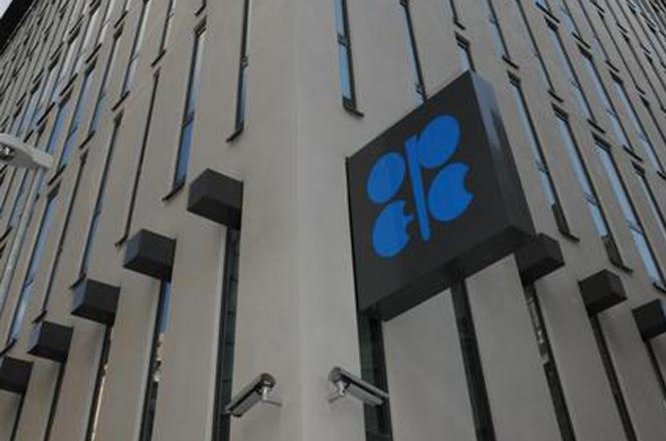OPEC has time to consider the potential loss of Iranian oil barrels and might kick the can down the road to its next meeting in November, a report from Oxford read. Photo courtesy of OPEC
June 19 (UPI) -- Considerations at OPEC for the loss of Iranian barrels to unilateral U.S. sanctions might have to wait until the fourth quarter, an Oxford analysis read.
The Oxford Institute for Energy Studies published its case study on the Friday meeting for members of the Organization of Petroleum Exporting Countries.
OPEC is halfway through the second year of an effort to drain the surplus in crude oil inventories held by the world's leading industrialized economies through coordinated production cuts. Oxford's analysis found oil stocks for members of the Organization for Economic Cooperation and Development in March fell below the five-year average for the first time in four years.
The surplus helped drag crude oil prices below $30 per barrel in early 2016. Higher oil prices, geopolitical concerns and global trade disputes all add up to broad-based economic concerns. With global oil stocks shrinking, there's little capacity for any shocks.
In May, however, U.S. President Donald Trump pulled his country out of the U.N.-backed nuclear agreement that extended sanctions relief for Iran's oil sector. That means the potential loss of an additional 1 million barrels per day from Iran.
"While it is not yet clear what will be the exact size of the potential loss of Iranian barrels, the refusal of most of the countries importing Iranian oil today to take part in the unilateral U.S. sanctions implies that the lost volumes will be below the 1.4 million bpd decline caused by sanctions in 2012 with many estimating a loss of between 350,000 bpd and 500,000 bpd," the report read.
European parties to the agreement have been working on measures that could protect their countries working in the Iranian energy sector. Currency swaps and a China undeterred by U.S. sanctions could offer additional buffers.
Iranian Oil Minister Bijan Zangeneh has pointed to Article 2 of the OPEC statute that states that regard should be given "at all times" to the interests of oil producing nations in terms of steady income and a regular supply of oil for consuming nations. Considering Trump's decision set a 180-day clock ticking as of May 8, Oxford said OPEC might not act yet on Iran.
"Considering that there is a three to six months wind-down period before the U.S. sanctions are fully reinstated, there is little expectation of immediate big losses of Iranian barrels," the report read. "This may provide OPEC with some flexibility to avoid dealing with the Iranian sanctions in its upcoming meeting and move any discussions on the matter to its November 2018 meeting which is closer to the end of the 180-days wind down period."
Oxford's report, published Monday, call for a "cautious approach" with OPEC increasing production only gradually ahead of its year-end meeting in November.















